Russian Public Support for Military Action in Ukraine Holds Steady
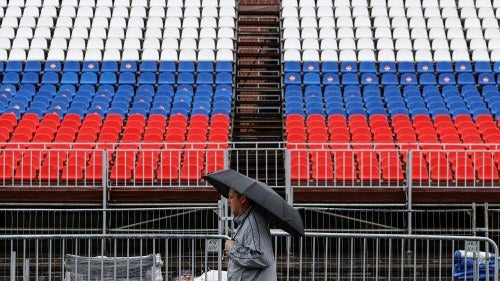
While more Russians say Moscow should start negotiations than continue fighting, their aim may be to solidify gains rather than making real compromises for peace.
As the war in Ukraine enters its second year, a March 23–29, 2023 public opinion survey in Russia conducted by the Levada Center finds that the Russian public remains relatively steadfast in its support for its country’s military action. At the same time, more prefer to begin peace negotiations with Ukraine rather than continue to fight. Yet previous polling shows that few Russians are prepared to make meaningful concessions.
Majority Continue to Back Russian Military Action
Seven in 10 Russians continue to say they support the special military operation (72%), down slightly from February (77%) and January 2023 (75%), but in line with previous readings. Four in 10 “definitely” support it, a slight decline from January and February, but also in line with prior levels.
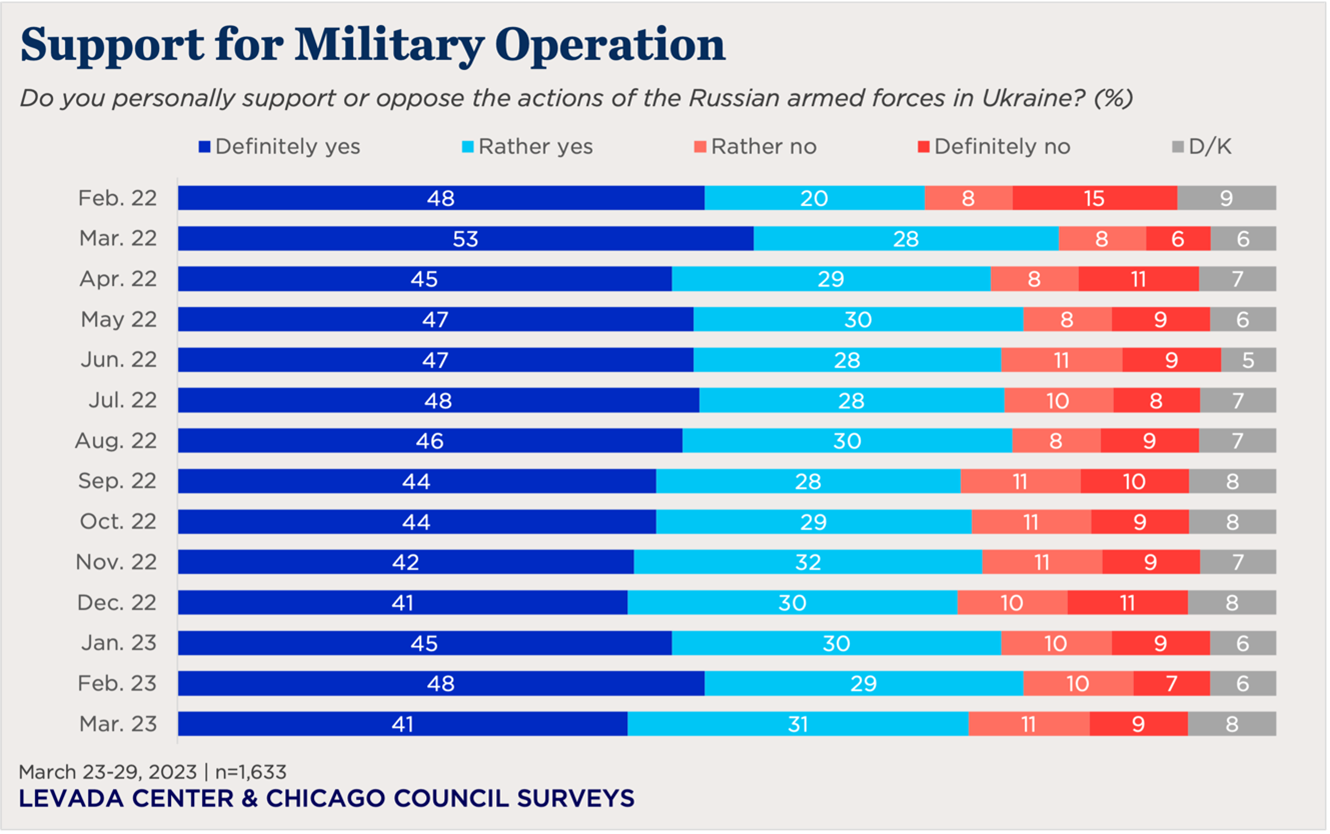
As in past surveys, those aged 55 and over (79%), men (77%), those who trust TV as the main source of news (79% support) and those who approve of President Vladimir Putin (81%) are the most ardent supporters. Younger Russians are less likely to support their country’s military action in Ukraine, but still do at majority levels (58% among those between 18–24 years of age), along with women (68%), and those who trust no news sources (62%). Those who trust television most for their news are more enthusiastic supporters for the military action (79%) than other media consumers, though backing is at majority levels across the news sources presented.
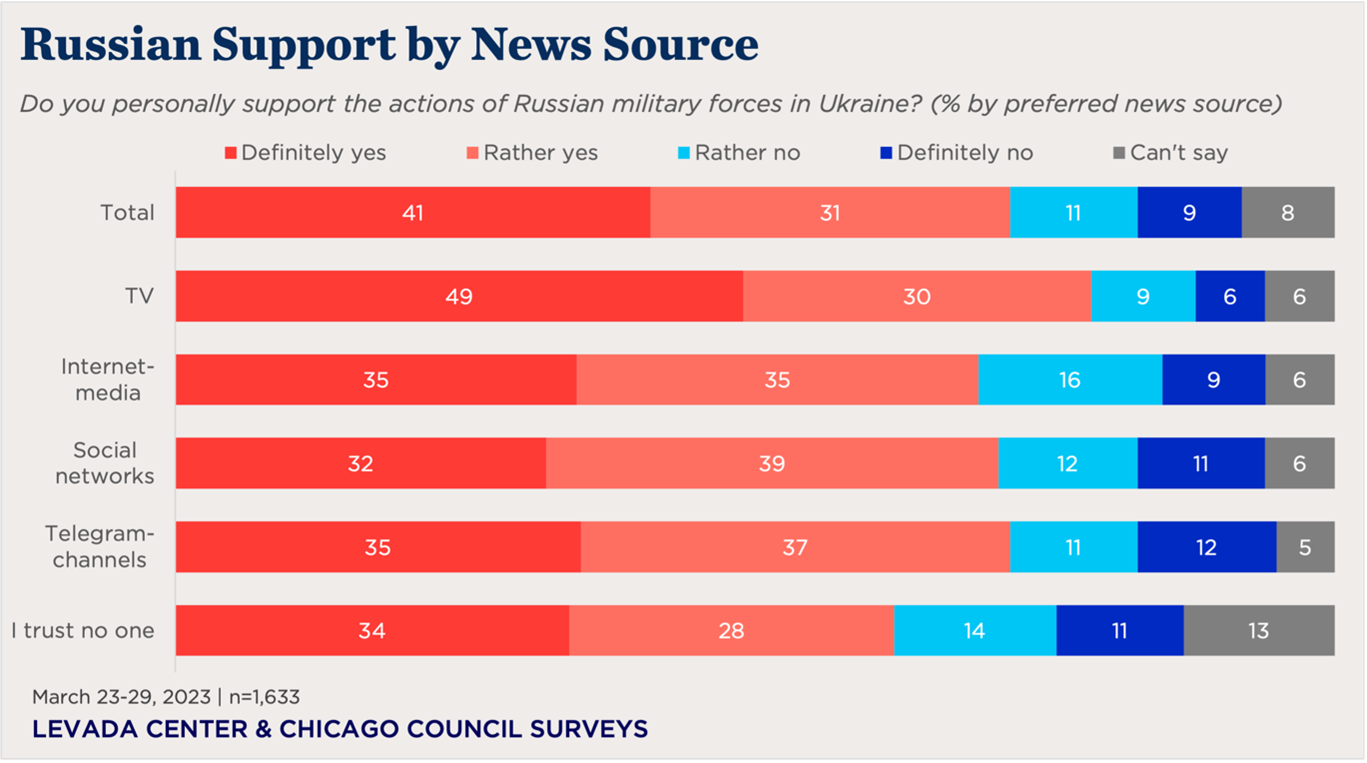
More Prefer Russia Start Peace Negotiations Than Continue Military Action
While most Russians tend to support the military operation, the prevailing view is that Moscow should start peace negotiations rather than continue to fight (50% to 42% continue the military operation). This ratio has not changed significantly since November 2022.
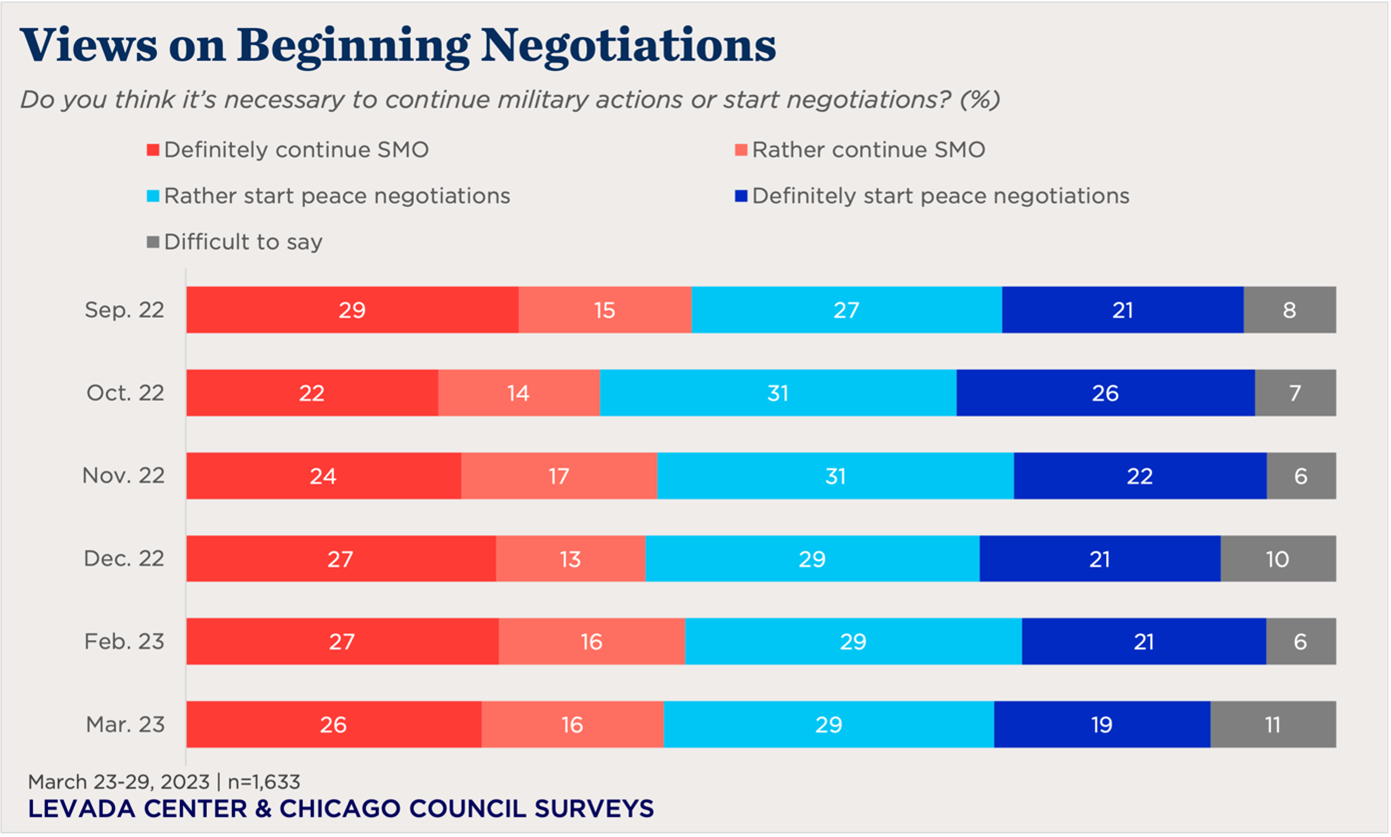
But it’s difficult to ascertain whether they would like to move to peace negotiations to solidify the Russian gains thus far or whether they are experiencing war fatigue. It seems less likely that they are willing to make significant compromises for peace. Last November’s Chicago Council-Levada Center survey found that very few Russians were open to territorial concessions—certain to be one of the key components for negotiations toward a peace settlement. Solid majorities said it is unacceptable to return Crimea (78%) or the occupied Donbas region (66%) to Ukraine.
Fears about Total Mobilization Subside but Majority Still Concerned
The partial mobilization of military reservists in late September 2022 prompted heightened anxiety and an exodus of military-aged men from the country. The March Levada poll shows that a majority of Russians remain worried about the possibility of a general mobilization to fight in the war (58%), but this concern is less widespread than it was in the past year (for example, 65% were concerned in October 2022).
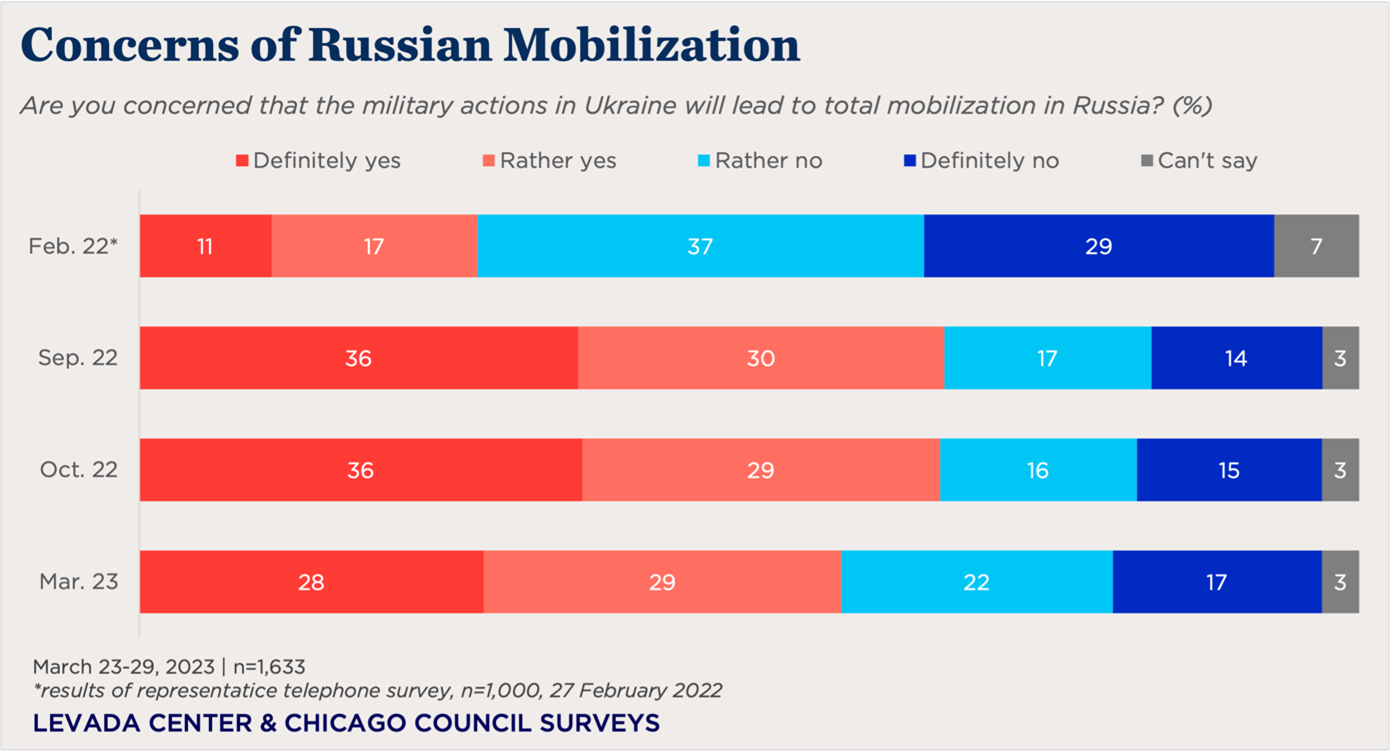
Perhaps because fears of a total mobilization have lessened, not as many Russians now as in past surveys say they are paying close attention to the conflict. Just 21 percent said they were following the situation very closely in March 2023, compared to 27 percent in December 2022 and 32 percent last September.
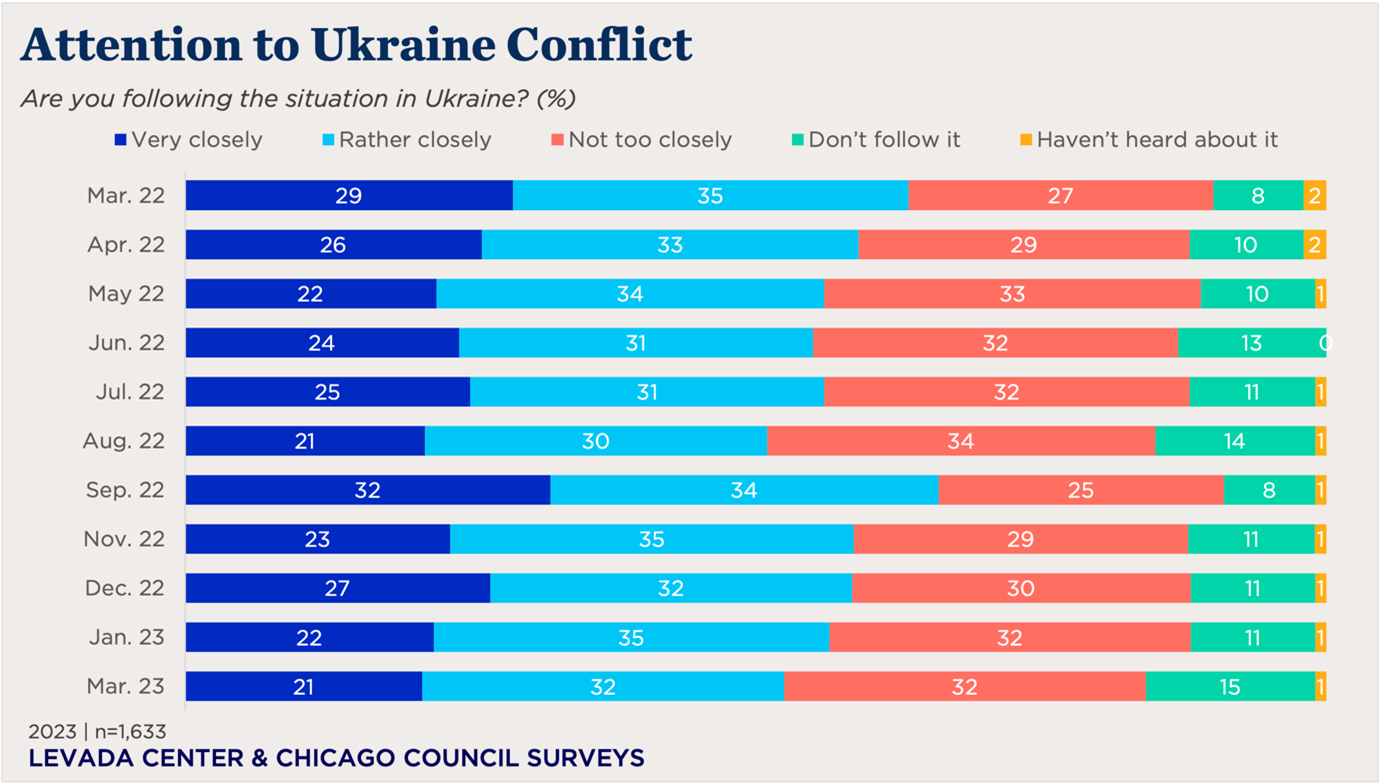
The bottom line: While it seemed like the anxiety and resentment of the partial mobilization last fall and fears of a second wider draft might deflate Russian support, at this point polling does not show much of a dent in public backing for the military operation.


Related Content
 Public Opinion
Public Opinion
A slim majority think Moscow should open up negotiations, but it is unclear what they might be willing to concede.
 Public Opinion
Public Opinion
But those feeling an economic pinch are more likely to say that Moscow should enter peace negotiations.
 Public Opinion
Public Opinion
A solid majority (69%) say that it would never be justified for Moscow to use a tactical nuclear weapon in its current military operation against Kyiv.
 Public Opinion
Public Opinion
Nearly half of Americans (47%) now say Washington should urge Kyiv to settle for peace as soon as possible.